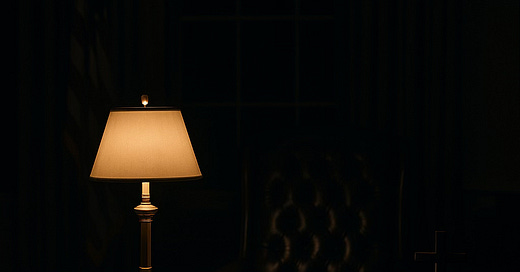A President, A Priest, and the Silence Before Dawn
What The West Wing teaches us about power, conscience, and moral responsibility
“Vengeance is mine, saith the Lord.”
— The priest to President Bartlet, The West Wing, Episode 14
Season 1, Episode 14 of The West Wing, titled Take This Sabbath Day, is one of the most morally arresting hours of television ever written. It doesn’t raise the question of guilt. It raises the question of conscience. And of silence.
President Jed Bartlet is informed that a man on death row will be executed by lethal injection over the weekend. The Supreme Court has declined to intervene. The appeals are over. The process is lawful. And yet—it feels deeply wrong to him. Bartlet is a man of faith. He doesn’t believe in capital punishment. But now he must decide: will he act on what he believes?
He looks for a way out—not out of responsibility, but out of accountability. He consults legal advisors. He calls in religious counsel. He asks whether it would be wrong to impose his personal morality on the state. Would it be arrogant? Or would it be cowardice not to?
He chooses inaction. And the man is executed.
But the final scene is what lingers. Bartlet, unable to sleep, sits alone in the quiet of the White House. His priest, Father Cavanaugh, sits across from him. Bartlet, angry at God, demands to know why no sign was sent. Why no clear path was shown. The priest tells him the parable of the drowning man—a man who refuses a boat and a helicopter because he’s waiting for God to save him. When he drowns, God tells him: “I sent you the boat. I sent you the helicopter.”
In that moment, the president realizes: the power to act was the sign. The ability to stop the execution was the boat. The Constitution gave him clemency. He had everything he needed. And still, he waited.
A Parable for Power
This episode is not about whether the man deserved to die. It’s about the burden of having the authority to stop it—and not using it. Bartlet’s torment is the torment of every person in power who fails to act, not out of evil, but out of fear, hesitation, or ambiguity.
And it forces us to ask:
If we are given power—and do not use it to act on our values—are we still innocent?
We often imagine that inaction is neutral. But The West Wing reminds us: inaction is also a choice.
And it carries consequences—sometimes irreversible ones.
When Power Meets Fulfillment
In my upcoming book The Fulfillment Curve, I argue that real fulfillment doesn’t come from achievement alone. It comes from alignment—when who we are matches what we value, and how we live reflects both.
Jed Bartlet is an achiever. He is President of the United States. But in this moment, he is out of alignment. He has the power to stop something he finds morally wrong. But he does not act. He tells himself he can’t. That it wouldn’t be right to impose personal belief on public policy.
But beneath that, something deeper is true. He let the structure of the system override the structure of his soul.
And that’s where fulfillment collapses—when we trade our deepest values for the appearance of neutrality.
The Silence We Must Sit With
This episode ends not with action, but with quiet. No heroic speech. No reversal of fate. Just a president sitting with the weight of what he didn’t do. That’s the real brilliance of the episode. It doesn’t offer a clean answer.
And neither will this series.
What it offers instead is a space to ask better questions.
Starting with this one:
Do we believe our power exists to reflect the will of the system—or to uphold the dignity of the person?
And if the answer is the latter, then what are we waiting for?
Next in the Series:
Justice vs. Vengeance: The Dangerous Illusion of Balance




